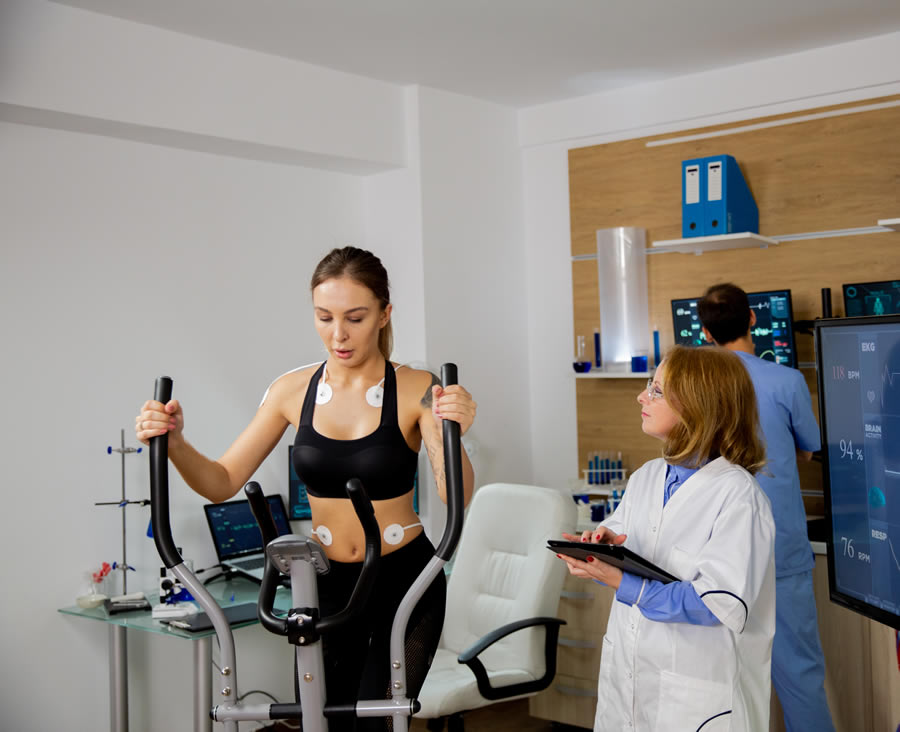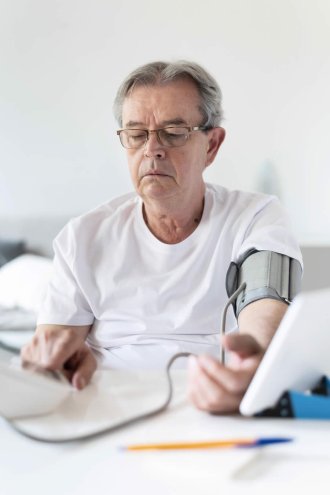When it comes to heart health, understanding the diagnostic tools at our disposal is critical. At Capitol Cardiology Associates, we emphasize the importance of stress tests as a vital part of cardiac care. But what exactly are stress tests, and why are they so important? Keep reading below to learn more about stress tests and what you can expect from them.
The Importance of Stress Tests in Cardiac Health
Stress tests, often referred to as exercise stress tests, are diagnostic procedures designed to evaluate how your heart functions under physical stress. During these tests, your heart is monitored while you perform physical activity, usually walking on a treadmill or pedaling a stationary bike. The primary goal is to detect any abnormalities in your heart's rhythm, blood flow, and overall function that might not be apparent when you're at rest. Stress tests are invaluable in diagnosing various heart conditions, including coronary artery disease, arrhythmias, and other cardiac disorders. By simulating the stress of exercise, these tests can reveal how well your heart copes with increased demands, helping your heart doctor determine the most appropriate treatment plan for you.
What to Expect During a Stress Test
Preparing for a stress test ahead of time can help ease any anxiety you might have. Here’s a step-by-step guide to walk you through the typical stress test experience:
- Preparation: Before the test, you'll be asked to avoid eating, drinking caffeinated beverages, and smoking for a few hours. Wear comfortable shoes and clothes suitable for exercise.
- Monitoring Setup: Once you arrive at the testing facility, electrodes are attached to your chest, arms, and legs to monitor your heart’s activity and a blood pressure cuff will is placed on the arm to measure your blood pressure.
- Baseline Measurements: Before you start exercising, baseline measurements of your heart rate and blood pressure, as well as an electrocardiogram, will be taken while you're at rest.
- Exercise Phase: You'll begin exercising on a treadmill or stationary bike. The intensity will gradually increase, either by speeding up the treadmill or adding resistance to the bike. This step-by-step approach helps to monitor how your heart responds to progressively higher levels of exertion.
- Monitoring and Symptoms: Throughout the test, your heart rate, ECG, and blood pressure will be closely monitored. It’s important to communicate any symptoms you experience, like dizziness, chest pain, fatigue or shortness of breath.
- Cool Down: After reaching a peak level of exercise, you'll be asked to gradually reduce your activity level to cool down. Post-exercise measurements will be taken to assess your heart’s recovery.
- Results: The results of the stress test will be analyzed by your dependable cardiologist, who will discuss the findings with you. These results can indicate the presence of any heart conditions and guide your treatment plan.
Who Should Consider a Stress Test?
Not everyone needs a stress test, but there are specific scenarios where they are particularly beneficial. Here are some common reasons why your cardiologist might recommend a stress test:
- Symptoms of Heart Disease: If you’ve been experiencing symptoms of heart disease, a stress test can help determine if these are related to underlying issues.
- Diagnosed Heart Conditions: For individuals already diagnosed with heart conditions like CAD or arrhythmias, stress tests can monitor the effectiveness of treatments and the progression of the disease.
- Risk Factors: Those with known risk factors for heart disease like high cholesterol, diabetes, or a family history of heart disease, might benefit from a stress test.
- Evaluating Treatment Plans: If you’ve undergone treatments such as angioplasty or heart surgery, a stress test can evaluate how well your heart is functioning post-treatment and guide future care decisions.
- Athletic Screening: Athletes or those planning to start a new exercise routine may undergo stress tests to ensure their heart is capable of handling increased physical activity.
Are You Searching for a Local Heart Doctor Who Can Perform a Stress Test?
If you’re experiencing symptoms of heart disease or have risk factors, schedule a stress test with Capitol Cardiology Associates today. Our cardiologists in Lanham, MD are here to provide personalized care to meet your needs. Your heart health is our priority, and we are here to support you every step of the way.





.webp)
.webp)